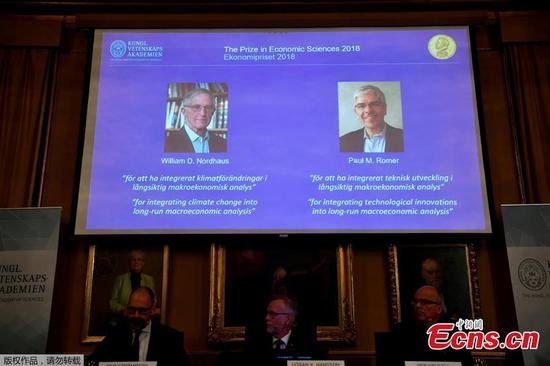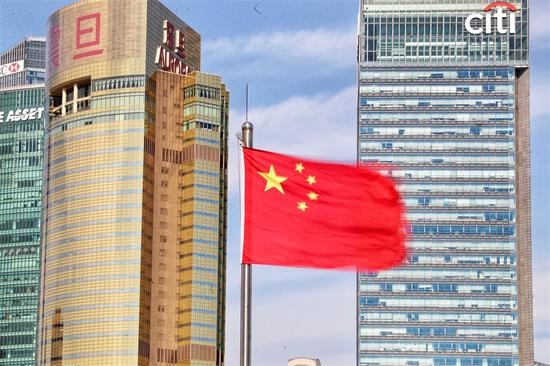The International Monetary Fund (IMF) has cut growth forecasts for the global economy this year and next year, as escalating trade tensions could dent business sentiment and trigger financial market volatility.
In its updated World Economic Outlook report released on the IMF's website on Monday, the Washington-based international lender said global economic growth is projected to reach 3.7 percent in 2018 and 2019, 0.2 percentage points lower than its previous forecasts in July.
"Downside risks to global growth have risen in the past six months and the potential for upside surprises has receded," the report said, adding the economic expansion has become "less balanced" and "may have peaked" in some major economies.
The IMF maintained its growth forecast of 2.4 percent for advanced economies in 2018, while downgrading its forecast for those economies in 2019 to 2.1 percent, 0.1 percentage point lower than its July forecast.
Growth in emerging markets and developing economies is projected to reach 4.7 percent in 2018 and 2019, 0.2 percentage points and 0.4 percentage points, respectively, lower than the previous forecasts in July.
The IMF kept its growth forecast for China at 6.6 percent this year, while shaving its projection for China's growth next year to 6.2 percent, down 0.2 percentage points from three months ago.
As the United States unilaterally imposed additional tariffs on some of its main trade partners in the past several months, the IMF warned that "escalating trade tensions and the potential shift away from a multilateral, rules-based trading system" are key threats to the global outlook.
"An intensification of trade tensions, and the associated rise in policy uncertainty, could dent business and financial market sentiment, trigger financial market volatility, and slow investment and trade," the report said.
"Higher trade barriers would disrupt global supply chains and slow the spread of new technologies, ultimately lowering global productivity and welfare," the report argued, adding more import restrictions would push up the prices of consumer goods, thus harming low-income households disproportionately.
The report comes as global financial ministers and central bankers gather in Bali, Indonesia, this week to attend the annual meetings of the IMF and the World Bank. Officials are expected to have a heated discussion on the trade tensions.
Christine Lagarde, managing director of the IMF, last week called on economies around the world to "de-escalate and resolve the current trade disputes" as global economic growth outlook has dimmed.
"The stakes are high because the fracturing of global value chains could have a devastating effect on many countries," Lagarde said, urging countries to work together to build a global trade system that is "stronger, fairer, and fit for the future."


















































